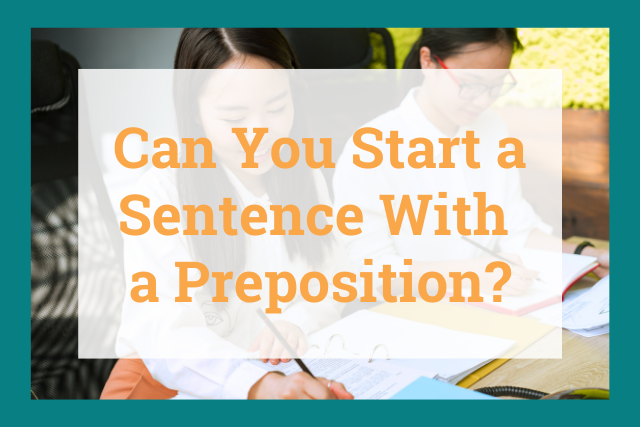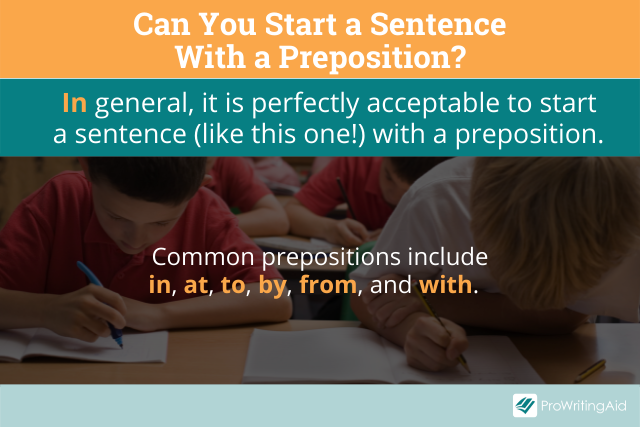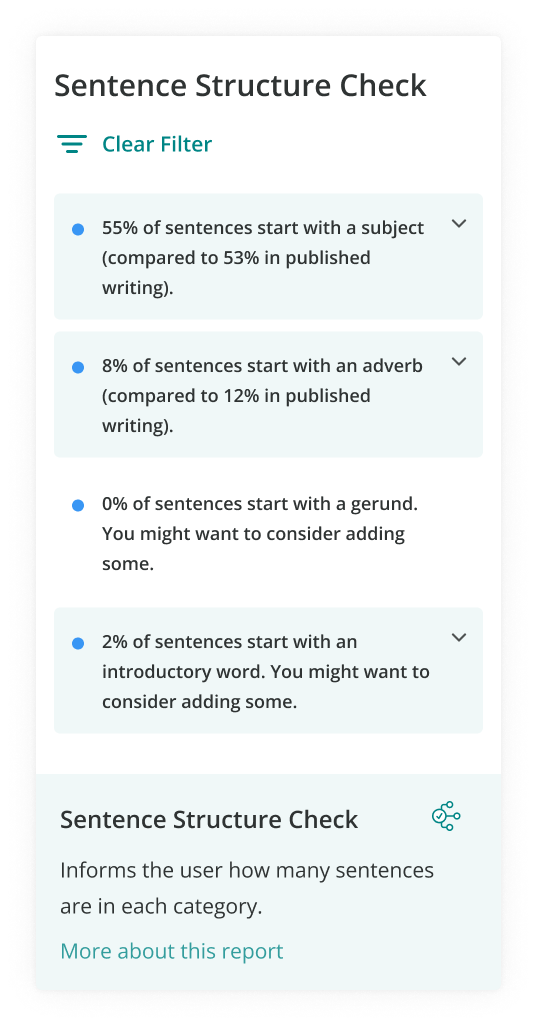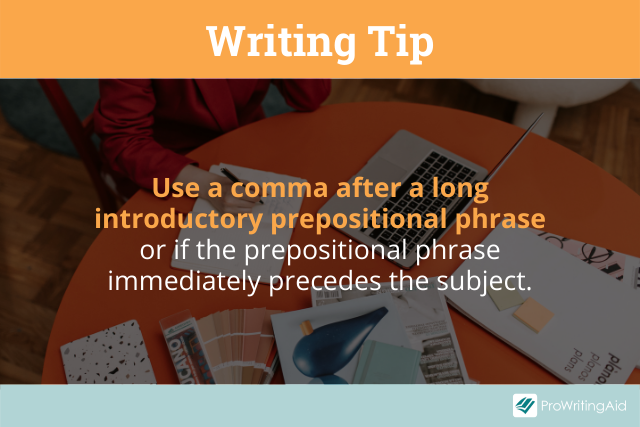
There are so many rules about prepositions; it’s easy to forget how to use them.
People often ask, “Can you start a sentence with a preposition?” The answer is yes! There’s no rule against starting a sentence with a preposition.
Prepositions are words that show a relationship between a noun or pronoun and another element in a sentence.
Some common prepositions are at, to, by, on, in, from, and with, although there are many more prepositions in English.
Let’s take a deeper look at how you can use prepositions at the beginning of a sentence.

Starting a Sentence with a Preposition: Good or Bad?
The confusion about whether or not you can start a sentence with a preposition comes from two out-of-date writing rules.
Students used to learn never to use a hanging preposition, also called a dangling preposition, in their writing.
Dangling prepositions are prepositions that end a sentence. It was considered informal to end a sentence with a preposition.
However, that rule is no longer widely accepted by writing experts, nor is the rule about never starting a sentence with a conjunction.
But because so many people learned those rules, they often mix them up, leaving them to wonder if they can start a sentence with a preposition.
There is no rule about starting sentences with prepositional phrases.
Starting sentences with prepositions isn’t good or bad. It’s a common feature of our language. The only thing to avoid is overusing it, even if its grammatically correct.
Using any sentence structure repeatedly can make your writing feel bogged down. Varying your syntax is a feature of great writing.
You can use ProWritingAid’s Structure Report to analyze what part of speech your sentences begin with. Then you’ll know whether you’re starting too many sentences with prepositions.

Examples of Sentences Starting with a Prepositional Phrase
Prepositions are found at the beginning of prepositional phrases.
A prepositional phrase is a phrase that contains a preposition and its object, plus any modifiers. Here’s an example of a sentence with a prepositional phrase:
- We went to the big park.
The preposition to clues us in that we have a prepositional phrase. The entire phrase is “to the big park.”
Sometimes, a sentence has an introductory phrase that is also a prepositional phrase. Here are some examples of sentences that begin with prepositional phrases:
- By the time you get home, dinner will be ready.
- Over the holidays, we visited our grandparents.
- From my perspective, it seems like both of you were in the wrong.
- Since last summer, she’s been running a mile every day.
You’ll notice that after each prepositional phrase which precedes the subject of the sentence, there’s a comma.
It’s a good idea to use a comma when the prepositional phrase immediately precedes a subject.

However, some style guides do not require the comma. Some require one only if the introductory phrase is longer than four words.
ProWritingAid will point out the need for commas after long introductory phrases, but again this is a stylistic choice.
If the prepositional phrases do not immediately precede a subject, you generally don’t use a comma. Here are some examples:
- In the closet is where I keep the dog food.
- With hard work comes success.
- On top of the mountain was an abandoned mining town.
- To boldly go where no man has gone before is the mission of the Starship Enterprise.
All the examples above are grammatically correct with or without the comma. We’ve just included the most common ways to use commas with prepositional phrases.
Can You Start a Sentence With At, From, In, After, or By?
Now that you know it’s fine to start sentences with prepositional phrases, you might wonder what it looks like using certain prepositions to open sentences.
Let’s look at a few common prepositions at the beginning of sentences.
Can You Start a Sentence With At?
You can start a sentence with the preposition at.
- At the moment, I don’t have any cash.
- At the beginning of the movie there’s a tragic montage.
- At the grocery store, will you pick up some ice cream?
- At her house there is a trampoline.
Can You Start a Sentence With From?
You can start a sentence with the preposition from.
- From the interstate, you’ll drive south until you reach Main Street.
- From a distance, the cows looked like black bears.
- From the bottom of my heart, thank you for everything you’ve done.
- From Oklahoma to Nebraska the landscape is very flat.
Can You Start a Sentence With In?
You can start a sentence with the preposition in.
- In the book The Great Gatsby, Fitzgerald explores the social differences between old wealth and new wealth.
- In this house, we speak respectfully to each other.
- In another life, I might have pursued a career in interior design.
- In your last email, you said the meeting would be rescheduled at a later time.
Can You Start a Sentence With After?
You can start a sentence with the preposition after.
- After all this time, he still flirts with his wife like they are young.
- After dinner, we can go and get frozen yogurt.
- After the boy did his homework, he was allowed to play video games.
- After an hour of inconsolable crying, the baby finally fell asleep.
Can You Start a Sentence With By?
You can start a sentence with the preposition by.
- By the way, I noticed your brake light was out.
- By the time Thanksgiving dinner was over, the entire family was arguing.
- By some miracle there were no injuries in the tornadoes last night.
- By any chance do you have a dollar I could borrow?
Conclusion on Starting a Sentence with a Preposition
Starting a sentence with a preposition is grammatically correct. Like any syntax, you should use prepositional phrases to begin your sentences in moderation.
How often you use this sentence structure is a matter of your personal writing style. Don’t be afraid to use prepositional phrases anywhere in your sentences.


